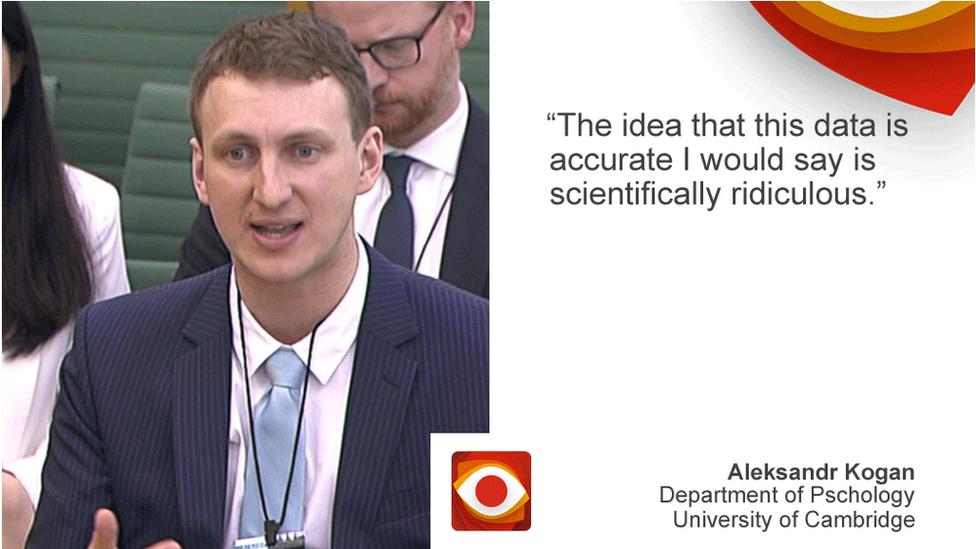INSUBCONTINENT EXCLUSIVE:
There is a huge spectrum of opinion on the value of the Facebook data that Cambridge University academic Aleksandr Kogan gave to Cambridge
Analytica's parent company, SCL.Dr Kogan told a parliamentary committee: "Given what we know now, nothing, literally nothing - the idea that
this data is accurate I would say is scientifically ridiculous."On the other hand, there have been suggestions this sort of data will allow
computers to gain a profound understanding of people and their preferences.In a news conference on Tuesday, Cambridge Analytica's spokesman
said the company had also found Dr Kogan's data set to be "virtually useless".The orthodox view among data scientists is that the use of
social media data to target adverts on Facebook is in its infancy and not yet hugely effective - but Dr Kogan is going further than that,
saying that it was completely without value.Reality Check has seen Dr Kogan's unpublished research into the value of predicted personalities
We judge that he is underselling its value although he is correct to say that the data was not accurate.Personality testLet's go back to
where the data came from and what it included.Dr Kogan had a personality testing app on Facebook, on which users would answer questions
about themselves and be given scores on how they rated on the Big Five personality traits: openness, conscientiousness, extraversion,
agreeableness and neuroticism, which are used by research psychologists and advertisers.Dr Kogan says about 270,000 users took this test
Taking the test also gave the app data on all the users' friends, which created a database of 30 million people and their predicted
personality scores, according to Dr Kogan
Facebook puts the figure at up to 87 million
These personality predictions are based on the idea that, for example, if it turned out that people who liked particular brands of sports
cars and nightclubs had also turned out to be extraverts, then you might predict that other people who liked those things would also be
extraverts.You can see a similar sort of system on the website of the Psychometrics Centre at the University of Cambridge, which attempts to
predict your personality test result based on your social media activity.Inaccurate predictionsDr Kogan's research was funded by SCL, the
research and communications company that formed Cambridge Analytica
Dr Kogan passed the data, including some of the pages that users had liked, to SCL
Dr Kogan now says that the data he gave to SCL was useless for targeting adverts on Facebook because individual predictions were too
inaccurate.But some data scientists argue that the overall quality of the personality predictions is not the most important measure
Part of the point of targeted advertising is to reduce costs by trying to appeal to only a relatively small number of users
So you might be more interested in people turning up at the extremes of particular personality measures rather than those coming up as being
close to average, because they are the ones most likely to exhibit the traits you are targeting.As such, the overall reliability of the data
may be less important than finding groups who may be targeted.Also, Dr Kogan argues that trying to assess the personality of an individual
gives too large a margin of error so the predictions are reliable only if you're taking averages across larger groups
But looking at larger groups may be helpful during an election, when you might be trying to decide where to buy advertising on local radio
or where to hold an election rally, for example.So Dr Kogan is underselling the value of his dataset
While not all of it would have been useful, parts of it could have been helpful.Image copyrightReutersRead more from Reality CheckSend us
your questionsFollow us on Twitter

